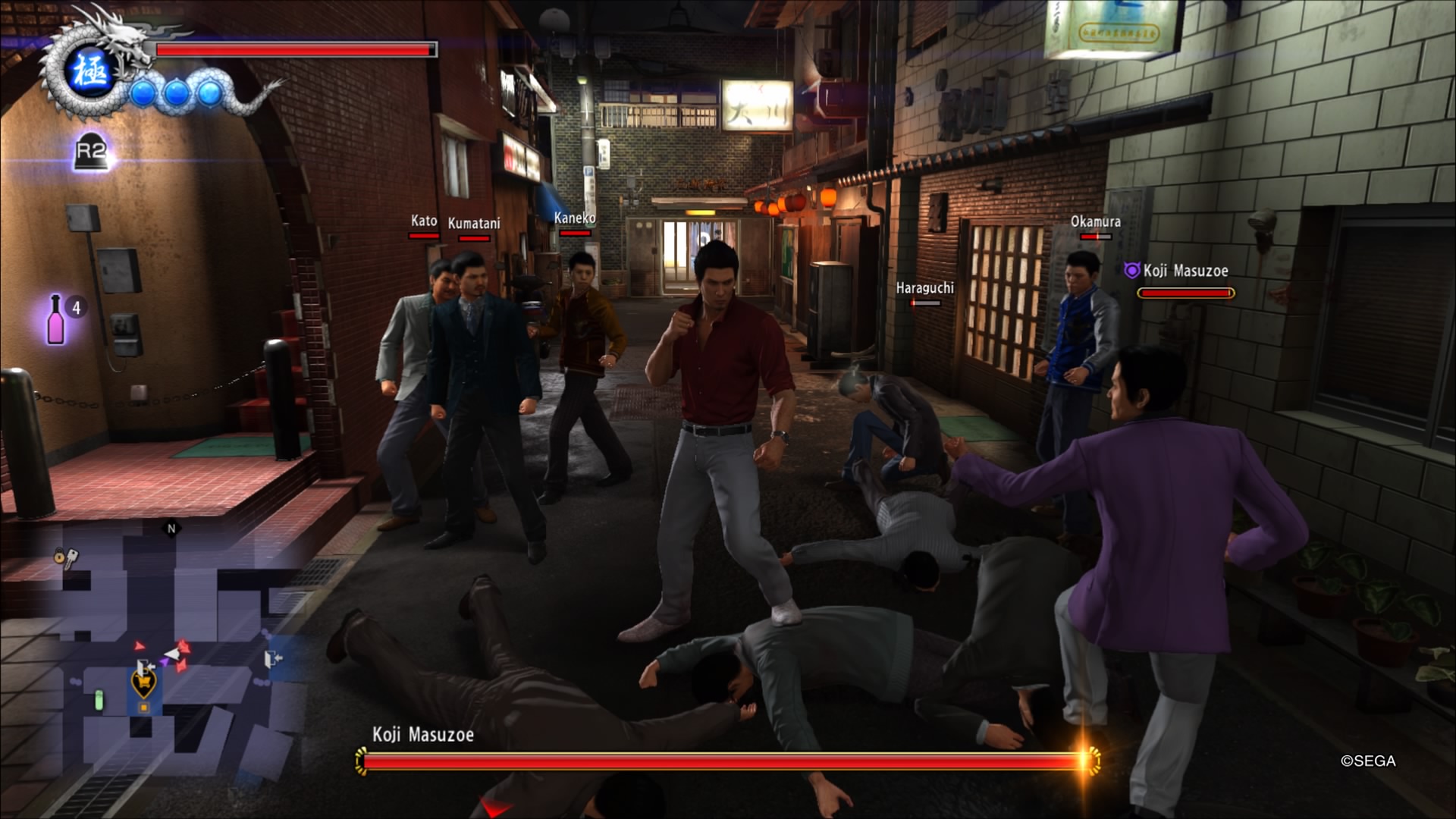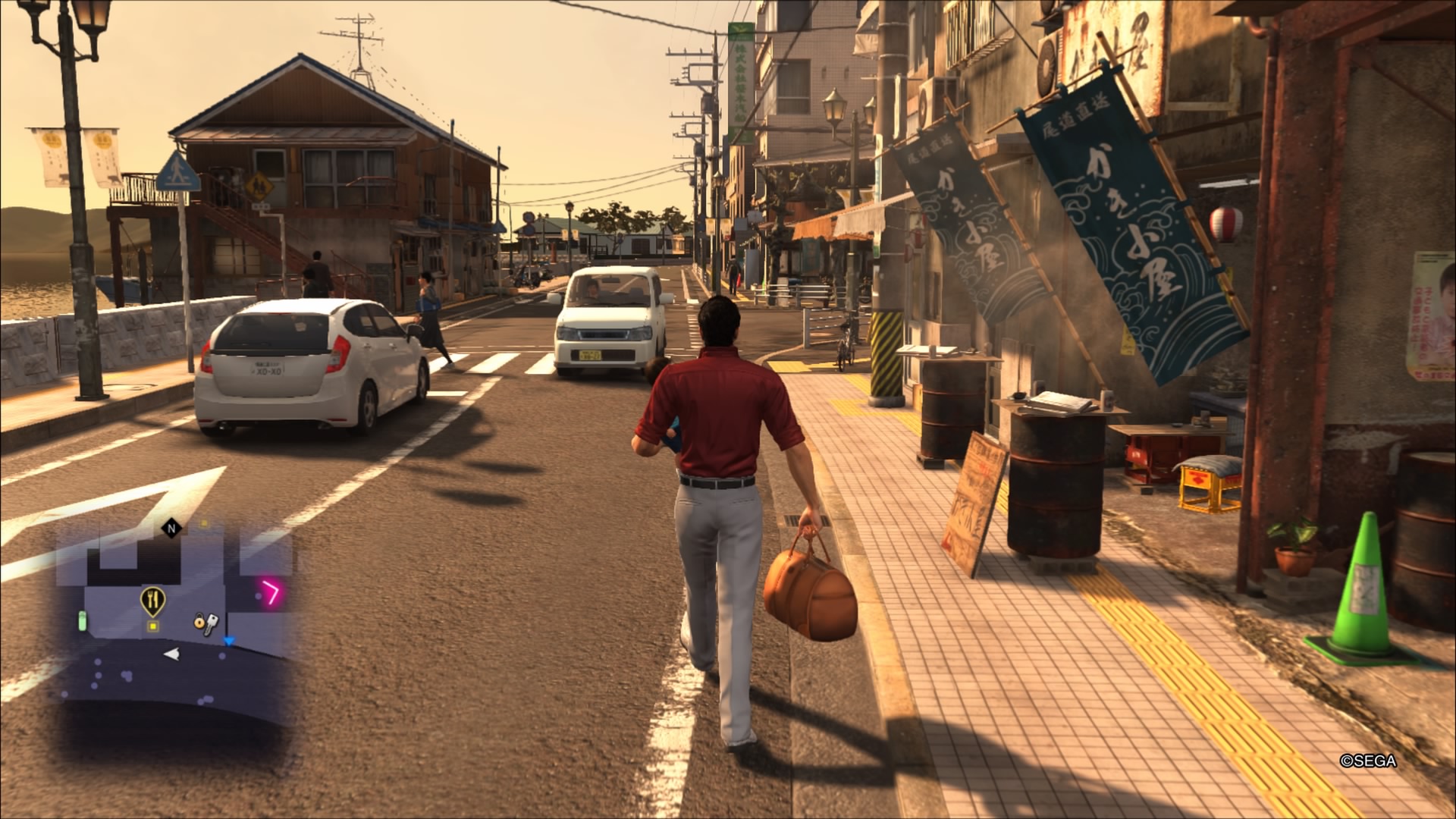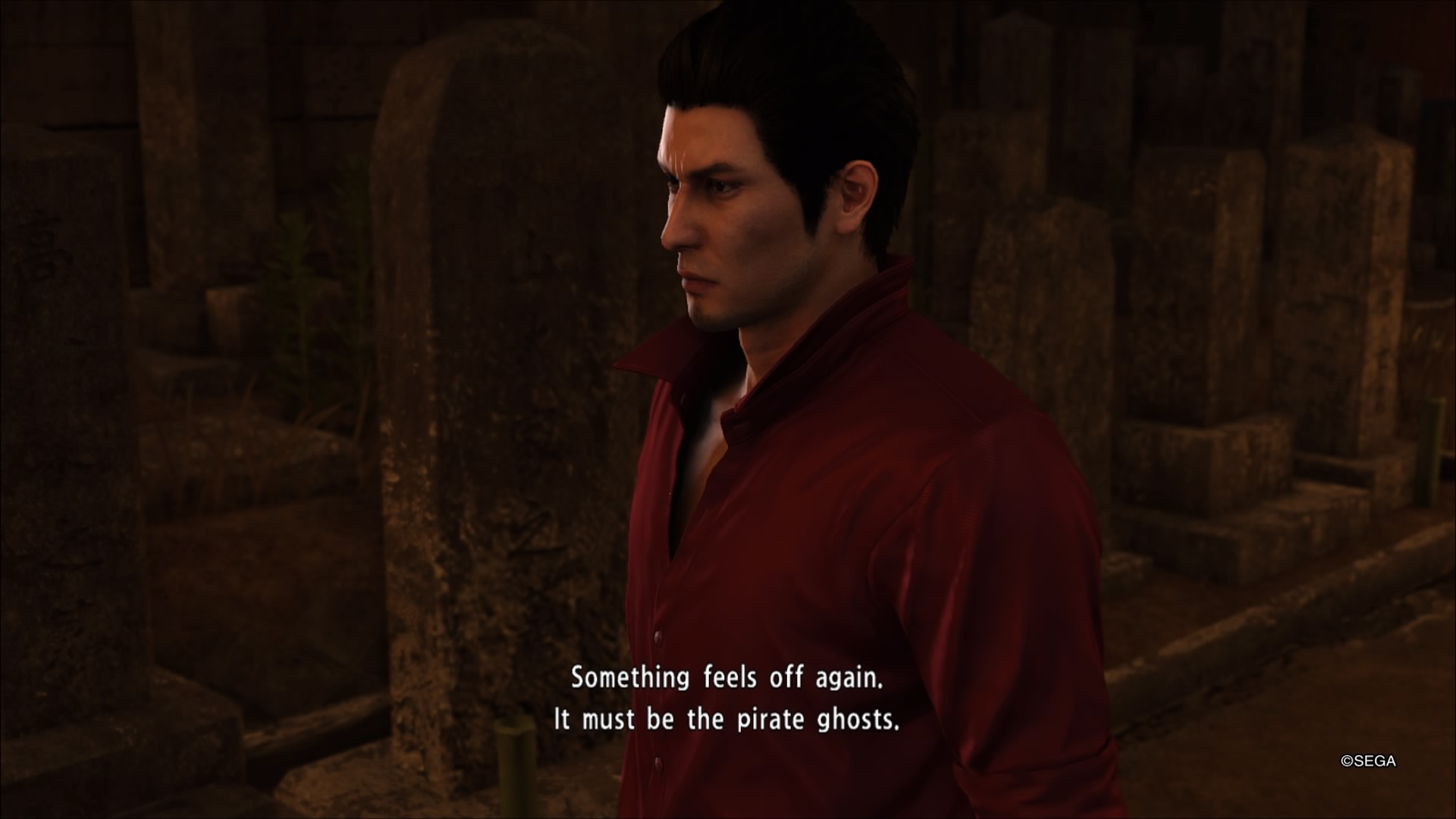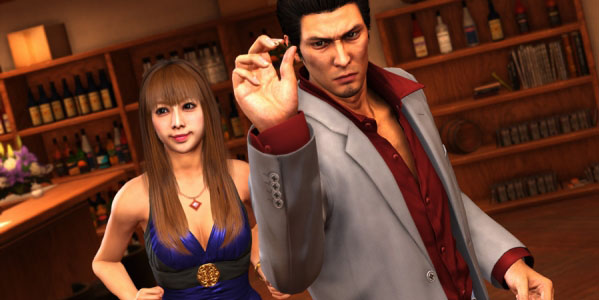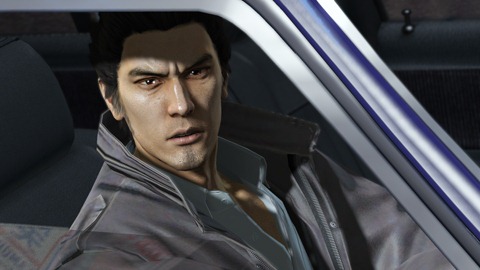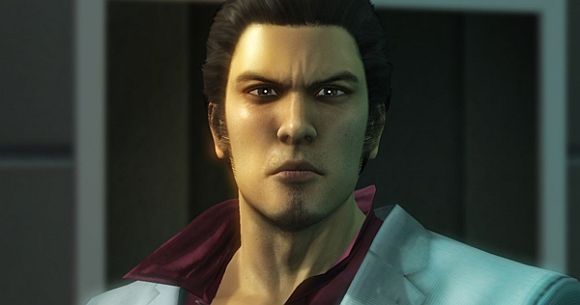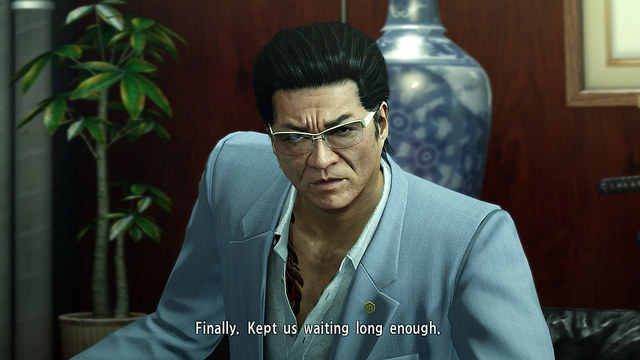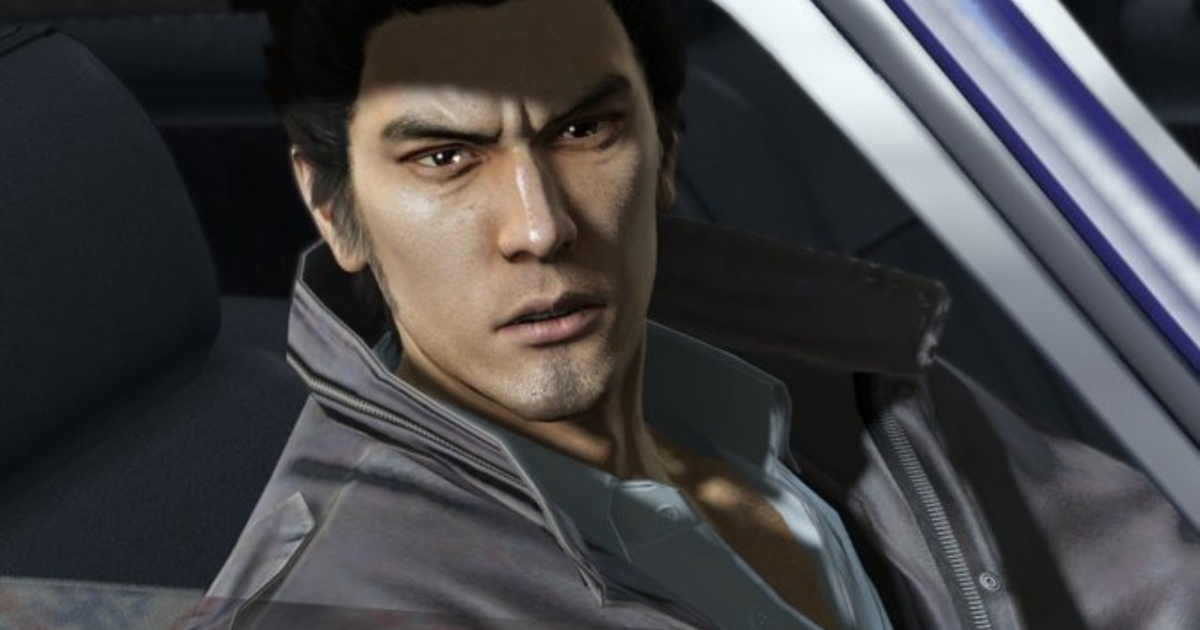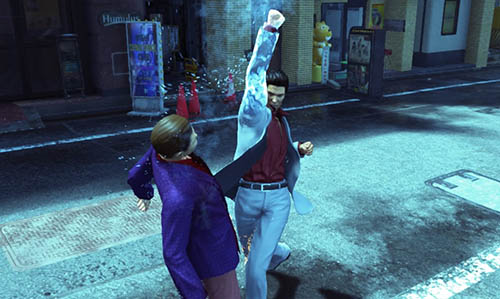
I was unprepared for Yakuza 6: The Song of Life. While friends have extolled the virtues of the Yakuza series to me for the past decade, since the franchise’s inception on PlayStation 2, I’d never ventured into the neon-lit streets of Kamurocho myself – until Yakuza 6: The Song of Life, that is. And it seemed like the worst place to start, after all, Yakuza 6 has been developed as the final send-off for long-time protagonist Kazuma Kiryu, before the series reboots itself with the upcoming Shin Yakuza. I was prepared to be somewhat like a viewer tuning in to The Walking Dead in its latest season, confused by what was going on and irritating my friends by having missed the best parts. I wasn’t expecting to be completely engrossed.
Despite being the last game in a long series, Yakuza 6 helps newcomers adjust in many ways, both through flashbacks, and text-based recaps of all the previous games. What helps the most is that Yakuza 6‘s story has a singular, simple focus that is easy for anyone to understand and relate to. Sure, there are complications – a lot of complications – which arise to give the game plenty of excuses for underworld action, but Yakuza 6 is surprisingly easy to jump into.
The ‘Dragon of Dojima’, the feared gangster Kazuma Kiryu has long since retired from the life of a Yakuza, not only for his own sake but that of his adoptive daughter, Haruka. At the start of Yakuza 6, he volunteers to spend three years in prison not only to take public attention away from Haruka, herself a famous ‘idol’ singer, but to atone for his past crimes. Tragically, upon his release, Kiryu finds a hospitalised Haruka in a coma, the victim of a hit-and-run accident, leaving her one-year-old son without a mother or a guardian. Driven by a singular desire to find the culprit behind Haruka’s accident, as well as the child’s father, Kiryu’s search takes him from Tokyo to Hiroshima, as he slowly begins to get drawn back into the crime world once more.
While a handful of fan-favourite characters from previous games do appear in Yakuza 6 in small roles, for the most part the game focuses on a new cast, largely from a small village in Hiroshima. Here, Kiryu finds a new home with the small, and embarrassingly ineffectual Hirose gang, and the relationship that builds between him and what comes to be a new family is incredibly endearing. There’s a real beating heart behind Kiryu’s final adventure that questions what’s truly important to him in his life. Despite how despicable some of the villains can be, nothing is presented in plain black and white, and every character is afforded real motivation and a degree of understanding. It’s a satisfying tale that genuinely gets you invested in its characters, although it occasionally goes too far out of its way to elucidate details and wrap up all loose ends, leading to some pacing issues when Kiryu first arrives in Hiroshima, and a final act that seems to continue far beyond when the pathos has logically finished.
Yakuza 6 is a game with a lot packed in there, but primarily it’s a brawler with RPG elements. Just about every issue Kiryu faces can be dealt with by a street brawl, whether it’s taking care of hoodlums in Tokyo, or trying to win an argument with a friend. The brawling mechanics are simple but satisfying. Most combos can be pulled off with a couple of buttons, and are often enough to take out small groups of enemies alone, however the real fun comes with the huge number of items you can grab to beat your enemies senseless, from traffic cones, bottles, benches to (my favourite) bicycles and motorbikes. Kiryu can upgrade to gain parrying and other ‘Heat’ special movies, but can also activate a super-powered ‘Extreme Heat’ mode, that surrounds him with an aura as he becomes an unstoppable punching jackhammer. Despite the potential to get repetitive, the simple formula, combined with the ever-growing ridiculous numbers of enemies you single-handedly take on, makes for a system that always feels rewarding.
Driving this is a levelling-up system that doesn’t solely rely on your fighting prowess, but your eating prowess as well. Experience can be banked not only from fights but from various food Kiryu can eat, both on the road and at a number of cafes and restaurants, and you actually have to keep pretty close tabs on what you eat and how much. Steak is better for physical stats, while fish is better brain food. Eat too much, and Kiryu will over-fill his stomach and forfeit any EXP bonuses. It’s such a strange but endearing way to build up a character and it becomes second nature, as you hit up cafes between missions.
There are two main areas to explore in Yakuza 6 – the traditional (fictional) Kamurocho red-light district of Tokyo, and the (quite real) seaside town of Onomichi in Hiroshima. There’s a great deal of content crammed into both locations, although by comparison the quiet Onomichi is almost empty compared to just how jam-packed Kamurocho is. The world map is small, but choc-a-bloc with activities, and also where Yakuza‘s sense of humour starts to leak in. First of all are the side-quests, which almost all are completely off-the-wall bloody insane, involving Kiryu with sentient AI assistants, body-swapping lovers, match-making robot vacuum cleaners and pirate ghosts (those are all real). Then there’s the ‘Troublr’ app, which constantly offers small missions which Kiryu can choose to involve himself in to help around town. Some larger activities involve luring cats to a cat cafe, or hanging out in a hostess cafe. On top of all of this is a range of mini-games, that almost qualify as real games in and of themselves, from Mahjong tournaments to actual Sega games included in many arcades – including Out-Run, Super Hang-On, Puyo Puyo, Fantasy Zone and even a fully playable arcade port of Virtua Fighter 5: Final Showdown, albeit with some audio bugs. It’s easy to get lost with just how much content there is – and how much of it is genuinely addictive.
On top of all of this is a ‘Clan War’ side-game that plays out almost like its own campaign. You can build your own ‘Kiryu Clan’ by recruiting characters you encounter or defeat throughout the game, or gained through the Yakuza ARG which has been going on over Sega social channels. Fighting against the poncy ‘JUSTIS’ clan, you command battles in a pseudo-RTS fashion, as well as assign lieutenants and captains to your organisation, and grow them as they win battles and level-up. This is a whole game in and of itself, on top of the main campaign, and easily worthy of funnelling many hours into if the brief introduction to tis gameplay in the main storyline grabs you.
I haven’t even mentioned the top-tier presentation across the board, with the eerily realistic representations of Hiroshima and Tokyo’s red light district that are packed with attention to detail, as well as some pretty great character model work. One model that does look a little strange belongs to legendary actor Beat Takeshi, playing the eccentric head of the Hirose family, although Kiryu himself looks incredible.
A common complaint I’ve seen on message boards for Yakuza fans that Yakuza 6 may not fall short in some areas compared to previous entries, sporting less content and fewer appearances by key characters than they may be used to. As this is my first Yakuza game, I can’t speak of any significant disappointment on my part. Yakuza 6: The Song of Life is as engaging and thrilling an experience as you’re going to find on PlayStation 4, with heart to spare and a degree of self-aware humour that’s endlessly charming, even through the unending in-game product placements. Whether you’re a Yakuza faithful or not, you owe it to yourself to join Kiryu on his final journey in Yakuza 6.
- A slow, but gripping story that provides a fitting end to Kiryu's saga - Deliciously fun brawling combat - A huge amount to do, from side quests to mini-games to full blown extra games - Oddball but endearing sense of humour
- Some pacing issues, and goes on for a chapter too long - For die-hard fans, it may seem lighter than previous entries

